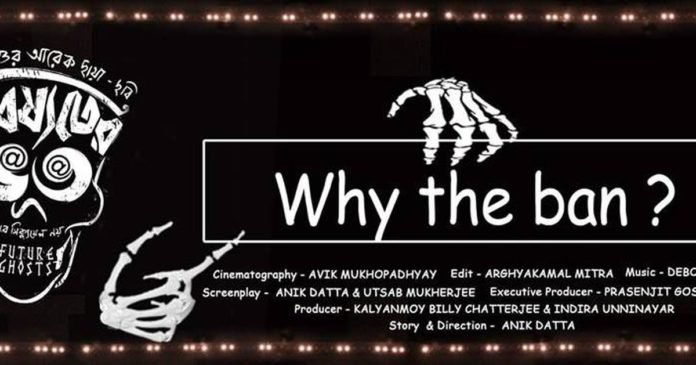The Supreme Court vide its order dated March 15, 2019 has directed the Government of West Bengal to ensure that no obstruction or restraint of any kind whatsoever is imposed on the viewing of the Bengali film ‘Bhobishyoter Bhoot’ or on the film being screened in theatres.
The Court further directed the Chief Secretary, the Principal Secretary, Department of Home and the Director General of Police, State of West Bengal to ensure that adequate arrangements for security are made to facilitate the screening of the film and to ensure that the viewers and the audience are not endangered and there is no danger to the property of the theatres where the film is being or will be screened. [READ ORDER HERE]
The order was passed in a petition filed by the producers of the film, Indibily Creative Pvt. Ltd, seeking a direction to the Government of West Bengal and its departments to refrain from causing any obstruction to the unhindered exhibition of the film Bhobishyoter Bhoot’. The film received its CBFC certification on November 19, 2018 yet a communication was addressed to the producer to the effect that as per the inputs received by the Government office, the contents of the film may hurt public sentiments which may lead to political law and order issues. The communication requested the producer to arrange for a private screening of the movie for few senior government officials. The producer responded to the communication pointing out that the film had obtained CBFC certification and that as per the decisions of the court, no authority including the Police is entitled to obstruct the release of the Film. However, despite the film having received the CBFC certificate, only 2 out of 48 theatres displayed the film.
While passing its order, the Supreme Court held that “Repeatedly, in decisions of this court, it has been held that once a film has been duly certified by CBFC, it is not open to any authority either of the State Government or otherwise to issue formal or informal directions preventing the producer from having the film screened. Such actions of the State directly impinge upon the fundamental right to the freedom of speech and expression guaranteed under Article 19(1)(a) of the Constitution of India.”
In her guest post here, Ritisha Mukherjee had covered the arbitrariness of such state actions and discussed the various judgements under which the courts have upheld the sanctity of the CBFC certificates and condemned such state actions.
In my view the petitioner ought to have claimed damages against the State Government for the losses suffered due to the arbitrary actions of the Government. In 2012 when the state governments of UP, Andhra Pradesh and Punjab had imposed a state ban on the film ‘Aarakashan’, Prakash Jha had moved the Supreme Court seeking damages against the states of Punjab and UP. The Supreme Court had issued notice in that matter, however the matter is yet to be decided by the apex court. It is high time that some strict precedent should be set against such arbitrary state actions in banning films despite the CBFC giving a green signal.
Image source: here














